Polls close in local Kosovo elections
Local elections were held on the territory of Kosovo on Sunday, the first to be organized by the Kosovo Albanian institutions in Priština.
Sunday, 15.11.2009.
09:30

Local elections were held on the territory of Kosovo on Sunday, the first to be organized by the Kosovo Albanian institutions in Pristina. The elections were being held in 36 municipalities, including three new ones in which Serbs make up the majority population—Gracanica, Klokot and Ranilug. Polls close in local Kosovo elections 21 Serb lists announced participation in the elections. There were about 18,000 registered voters in the Serb-dominated Gracanica and its 16 surrounding villages. The turnout at 15:30 CET was 32.86 percent of registered voters, the election commission announced. The lowest turnout was recorded in the northern parts of the province: 0.48 percent in Leposavic, 5.61 percent in Zubin Potok, and 0.64 percent in Zvecan. Elsewhere, in what is referred to as "new Serb municipalities", the figures were as follows: 14.22 percent in Gracanica, 9.15 percent in Ranilug, and 13.93 percent in Klokot. According to this, Strpce and Novo Brdo saw turnouts of 23.44 and 17.47 percent respectively. In Pristina, 30.55 percent of voters cast their ballots by 15:30 CET. EU special representative in Kosovo and head of the International Civilian Office Pieter Feith toured some polling stations and expressed his satisfaction with the Serb turnout, saying that "stakes are high for the Serb community", and that they now have a chance to ensure autonomy in their municipalities, "according to the Ahtisaari plan". Ahead of the voting, it was unknown how many Serbs in Kosovo would be voting, with many split between Belgrade’s recommendations that necessary conditions for the participation of Kosovo Serbs have not been met, and the calls from some local Serb officials who want to take control of local administrations into their own hands. RFE/RL reported that there were no polling stations in many Serb-dominated northern areas, including Kosovska Mitrovica, and say that "election authorities gave no official reason for the lack of polling stations in the north but cited 'technical difficulties'." The elections were being monitored by several international organizations, including a delegation of the European Parliament led by Doris Pack. Voting materials for the Kosovo elections (FoNet) "Small turnout in illegitimate vote" Minister for Kosovo and Metohija Goran Bogdanovic commented this evening on the elections to say that a "small number of Serbs voted in the illegitimate local elections called in the province by the temporary institutions". A huge number of Serbs, at the same time, adhered to the government's position that conditions were not present for their participation. "Once they became aware of that fact, the organizers turned to manipulation and irregular activities in order to increase the supposed turnout of the Serb voters. However, not even those numerous manipulations and abuse of ballot papers helped to change the fact that the Serb turnout has been small," said he in a statement carried by Beta news agency. Bogdanovic added that "everyone can see that the Serb community did not wish to play a role given to them in advance, which would offer legitimacy to an illegitimate election". "All those who participated in the elections must be aware of the fact that they can in no way represent the Serbs in Kosovo. This was demonstrated to them and taken away from them by the Serb community itself, which did not go to the polls," Bogdanovic concluded.
Polls close in local Kosovo elections
21 Serb lists announced participation in the elections. There were about 18,000 registered voters in the Serb-dominated Gračanica and its 16 surrounding villages.The turnout at 15:30 CET was 32.86 percent of registered voters, the election commission announced.
The lowest turnout was recorded in the northern parts of the province: 0.48 percent in Leposavić, 5.61 percent in Zubin Potok, and 0.64 percent in Zvečan.
Elsewhere, in what is referred to as "new Serb municipalities", the figures were as follows: 14.22 percent in Gračanica, 9.15 percent in Ranilug, and 13.93 percent in Klokot.
According to this, Štrpce and Novo Brdo saw turnouts of 23.44 and 17.47 percent respectively.
In Priština, 30.55 percent of voters cast their ballots by 15:30 CET.
EU special representative in Kosovo and head of the International Civilian Office Pieter Feith toured some polling stations and expressed his satisfaction with the Serb turnout, saying that "stakes are high for the Serb community", and that they now have a chance to ensure autonomy in their municipalities, "according to the Ahtisaari plan".
Ahead of the voting, it was unknown how many Serbs in Kosovo would be voting, with many split between Belgrade’s recommendations that necessary conditions for the participation of Kosovo Serbs have not been met, and the calls from some local Serb officials who want to take control of local administrations into their own hands.
RFE/RL reported that there were no polling stations in many Serb-dominated northern areas, including Kosovska Mitrovica, and say that "election authorities gave no official reason for the lack of polling stations in the north but cited 'technical difficulties'."
The elections were being monitored by several international organizations, including a delegation of the European Parliament led by Doris Pack.
"Small turnout in illegitimate vote"
Minister for Kosovo and Metohija Goran Bogdanović commented this evening on the elections to say that a "small number of Serbs voted in the illegitimate local elections called in the province by the temporary institutions".A huge number of Serbs, at the same time, adhered to the government's position that conditions were not present for their participation.
"Once they became aware of that fact, the organizers turned to manipulation and irregular activities in order to increase the supposed turnout of the Serb voters. However, not even those numerous manipulations and abuse of ballot papers helped to change the fact that the Serb turnout has been small," said he in a statement carried by Beta news agency.
Bogdanović added that "everyone can see that the Serb community did not wish to play a role given to them in advance, which would offer legitimacy to an illegitimate election".
"All those who participated in the elections must be aware of the fact that they can in no way represent the Serbs in Kosovo. This was demonstrated to them and taken away from them by the Serb community itself, which did not go to the polls," Bogdanović concluded.












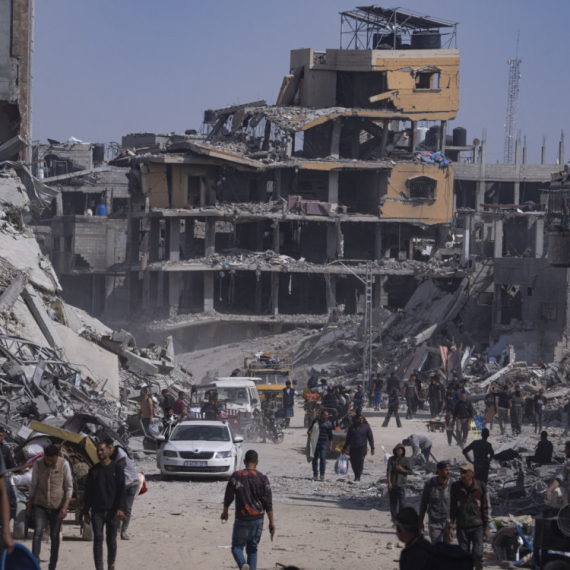


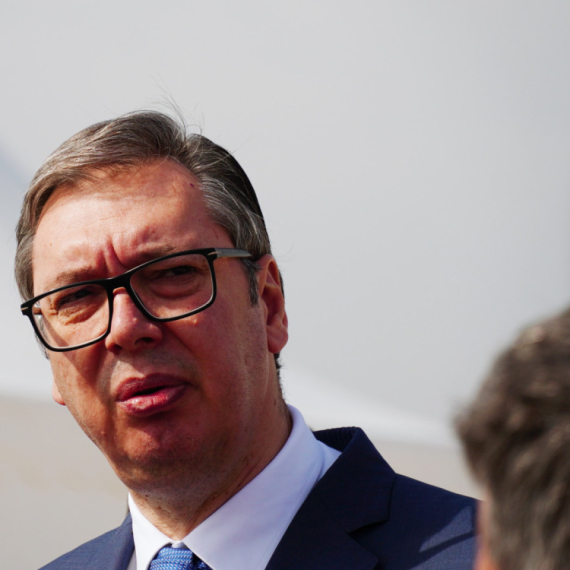




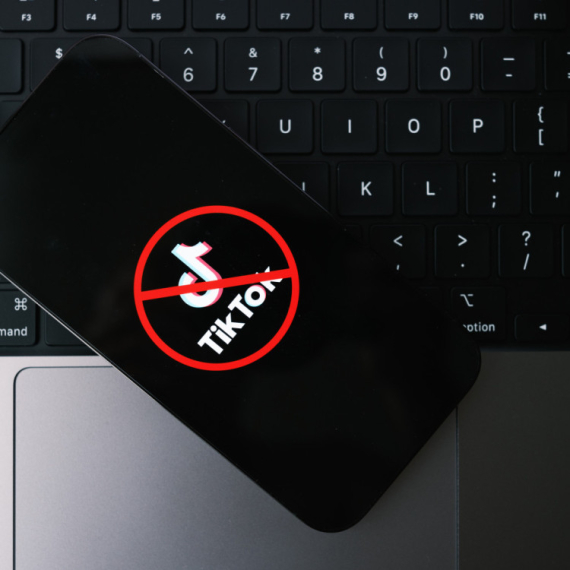




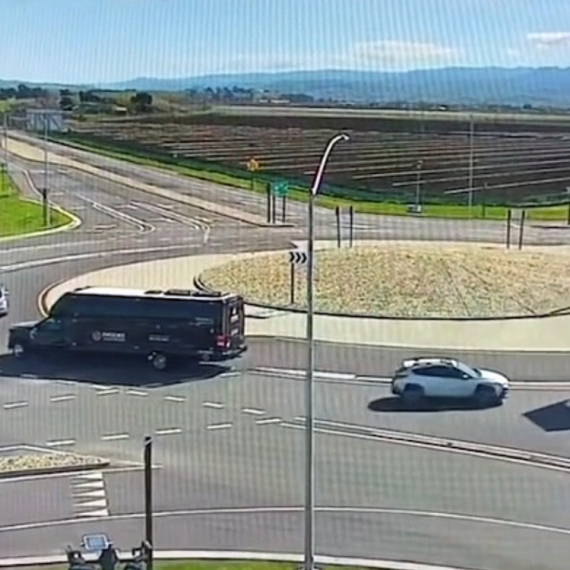






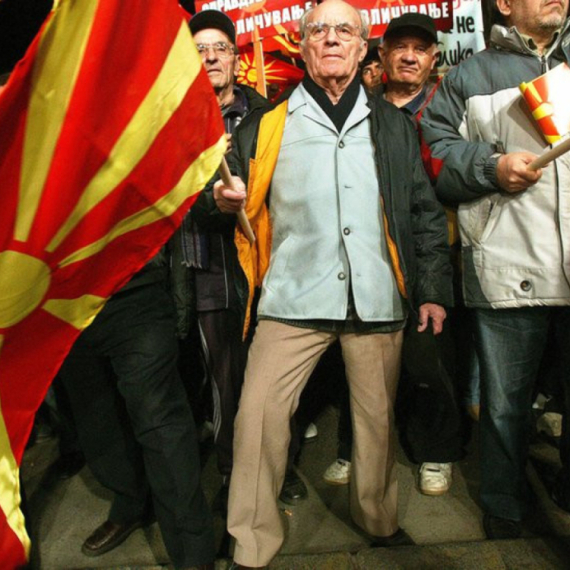
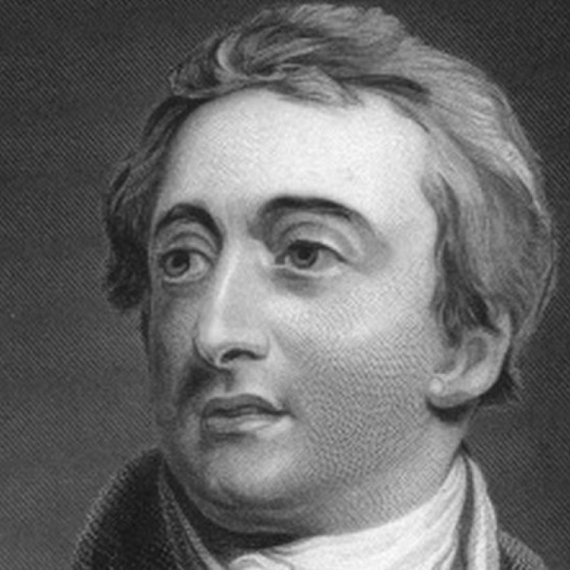


Komentari 27
Pogledaj komentare